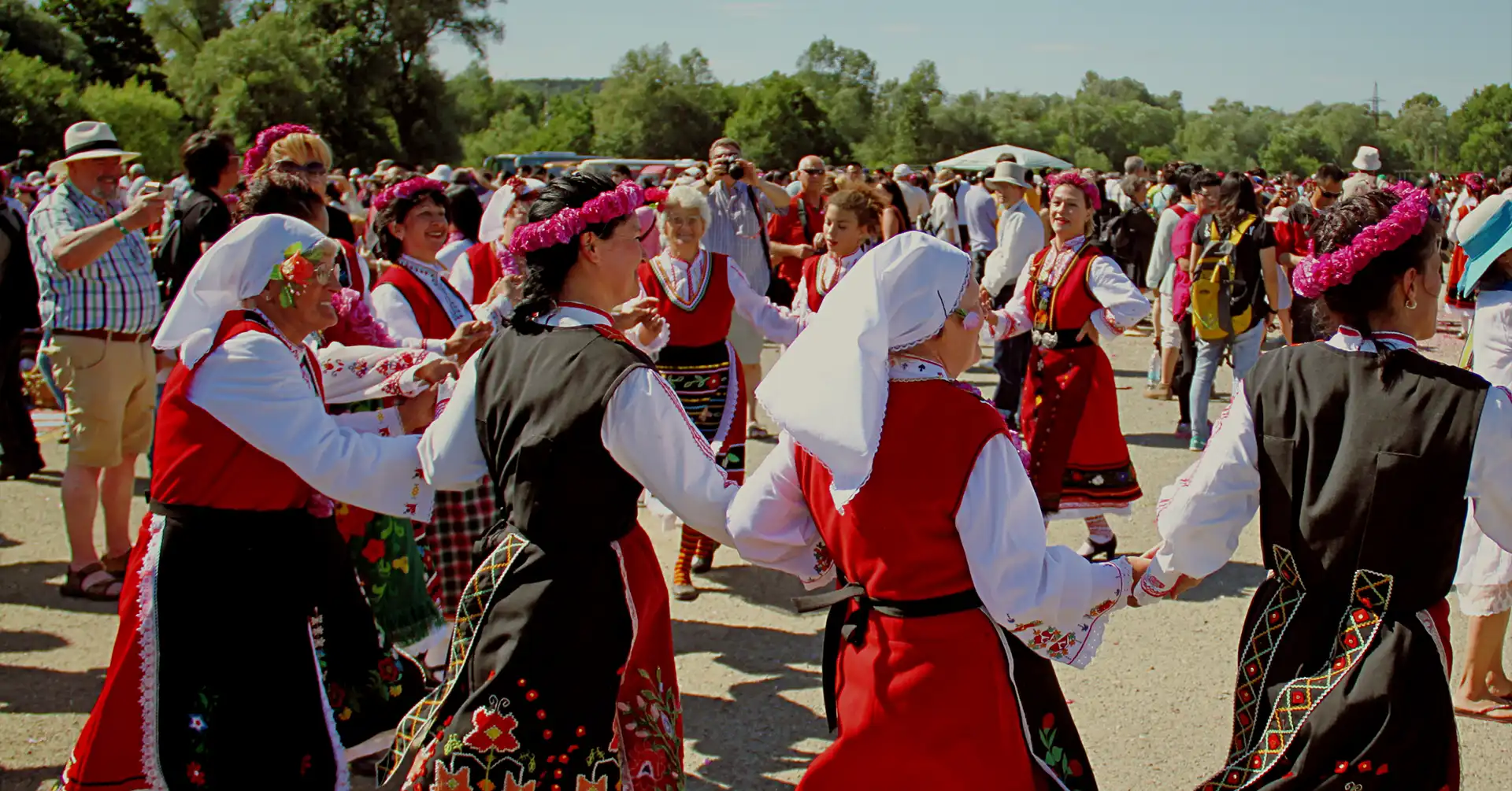Hello, my wonderful readers! Discover the rich tapestry of Albanian culture, history, and religion in this immersive exploration that takes you on a captivating journey through the heart of the Balkans. This blog delves into the fascinating facets that define Albania, from the ancient roots of Illyrian civilization to the vibrant traditions that have evolved over centuries.
Uncover the hidden gems of Albanian history, where the country’s past unfolds like a compelling narrative, marked by tales of resilience, conquests, and cultural exchange. Traverse the landscapes of antiquity as we unveil the layers of influence that have shaped this nation, from Roman and Byzantine legacies to Ottoman heritage.
Immerse yourself in the diverse and dynamic cultural expressions that characterize Albania. From traditional folk music and dance to the intricate artistry embedded in crafts, witness how the spirit of Albania thrives in its people’s creativity. Explore the unique fusion of Eastern and Western influences that make Albanian culture a captivating mosaic of traditions.
As we journey through the spiritual landscapes, we delve into the religious diversity that has played a pivotal role in shaping Albania’s identity. Discover the coexistence of Islam, Christianity, and other belief systems, each leaving an indelible mark on the nation’s ethos.
Join us on this odyssey of exploration, where the past and present converge to paint a vivid portrait of Albanian culture, history, and religion. Through these pages, unlock the treasures that make Albania a captivating destination for those eager to unravel the layers of a nation steeped in heritage.
Where is Alabania at?
Albania, situated in Southeastern Europe on the Balkan Peninsula, commands attention as a nation of historical significance and breathtaking landscapes. Between Montenegro to the northwest, Kosovo to the northeast, North Macedonia to the east, and Greece to the south, Albania boasts a diverse topography with a stunning coastline along the Adriatic and Ionian Seas.
The country’s geographical coordinates place it roughly between 39.6°N and 20.0°E, offering a climate that varies from Mediterranean along the coast to continental in the interior. The capital city, Tirana, is strategically positioned in the central-western part of the country, serving as the cultural and economic hub.
The Albanian Alps dominate the northern region with their majestic peaks and pristine landscapes, providing a haven for nature enthusiasts and hikers. To the south, the Ionian and Adriatic coasts beckon with their sandy beaches and crystal-clear waters, making them popular destinations for sun-seekers and water sports enthusiasts alike.
In addition to its natural beauty, Albania is imbued with a rich history. The country has been shaped by various civilizations, including the Illyrians, Romans, Byzantines, and Ottomans, leaving an indelible mark on its culture and architecture.
Navigating through Albania’s geographical tapestry unveils a nation that bridges the gap between East and West and offers a treasure trove of historical, cultural, and natural wonders for those eager to explore its unique position on the map.
Famous Events of Albanian Culture
Albania, with its storied past, has witnessed many famous events that have shaped its history and identity. One of the pivotal moments occurred during the early 20th century when the country declared its independence from the Ottoman Empire on November 28, 1912. This landmark event marked the establishment of the Principality of Albania, setting the stage for the nation’s subsequent development.
During World War II, Albania faced a unique and challenging situation. The country was occupied by Italian forces in 1939 and later by Nazi Germany. However, the resilient Albanian people mounted a spirited resistance against the occupation, earning admiration for their courage and determination.
A transformative event unfolded in 1992 when Albania emerged from decades of communist rule. The fall of communism marked a turning point as the country transitioned to a democratic system. The subsequent years saw Albania gradually opening up to the world, embracing political and economic reforms.
In 1997, Albania faced a tumultuous period called the “Pyramid Crisis.” The collapse of fraudulent investment schemes led to widespread unrest and social upheaval. The crisis prompted international intervention and ultimately contributed to a renewed focus on stabilizing the country.
More recently, Albania has become an aspiring member of the European Union, with its journey toward EU accession marked by various milestones and reforms. The pursuit of integration has become a significant chapter in the nation’s contemporary history.
Albania’s rich tapestry of famous events reflects a nation that has navigated through challenges, celebrated moments of triumph, and continues to evolve on the global stage. Each event has left an indelible mark on the country’s identity, contributing to modern-day Albania’s diverse narrative.
The Religion of Albanian Culture
Albania, a nation at the crossroads of cultures, showcases a unique religious landscape that has evolved over centuries. Historically characterized by a blend of faiths, the predominant religions in the country are Islam and Christianity.
Islam holds a significant place in Albania’s religious fabric, with the majority of the population adhering to Sunni Islam. The Ottoman influence during the centuries of Ottoman rule has impacted the country’s religious demographics. With their distinct architectural styles, Mosques dot the Albanian landscape, offering spaces for worship and reflection.
Christianity, particularly in the form of Albanian Orthodox Christianity and Roman Catholicism, also plays a crucial role in the religious mosaic. The Albanian Orthodox Church, with its ancient roots, contributes to the cultural and spiritual heritage of the country. Meanwhile, Roman Catholicism has a substantial following, especially in the northern regions.
One of the unique aspects of Albania’s religious landscape is the historical practice of religious tolerance. The concept of religious harmony, known as “Besa,” has deep roots in Albanian culture. This tradition emphasizes respect for religious diversity and has played a crucial role in fostering peaceful coexistence among different faiths.
The country underwent a period of state atheism during the communist era under Enver Hoxha, where religious practices were heavily restricted. However, since the fall of communism in 1992, Albania has experienced a resurgence of religious freedom, allowing its diverse religious communities to thrive again.
Albania’s religious identity is a dynamic tapestry, reflecting a history of coexistence and a contemporary embrace of diversity. The nation stands as a testament to the harmonious integration of various faiths, contributing to the rich cultural heritage that defines the spiritual landscape of modern Albania.
The Famous Foods of Albania
Tavë Kosi (Baked Lamb with Yogurt):
Succulent lamb is marinated and baked to perfection, then topped with creamy yogurt and eggs. This iconic Albanian dish offers a delightful fusion of flavors.
Byrek (Savory Pie):
Byrek, a popular Albanian pastry, features layers of thin dough filled with various ingredients such as spinach, feta cheese, and minced meat. It’s a versatile and satisfying dish enjoyed throughout the country.
Fërgesë (Pepper and Cottage Cheese Dish):
Fërgesë combines green and red peppers with cottage cheese, creating a flavorful and hearty dish. Often served with bread, it’s a staple showcasing Albanian cuisine’s simplicity and deliciousness.
Qofte (Meatballs):
Albanian meatballs, or qofte, are typically made with minced meat (often lamb or beef), onions, and various herbs and spices. These savory delights are either grilled or fried, offering a delectable taste of Albanian comfort food.
Pite (Sweet or Savory Pie):
Pite is a versatile pastry that can be either sweet or savory. The savory version may include layers of dough filled with ingredients like pumpkin, while the sweet version often features a delightful blend of nuts and honey.
Jani Me Fasule (Bean Soup):
This hearty and nutritious bean soup is a cherished Albanian classic. Prepared with white beans, tomatoes, and various herbs, it’s a wholesome dish enjoyed in Albanian households, especially during colder seasons.
Flija (Layered Pancake Cake):
Flija is a traditional Albanian cake made by layering thin pancakes with a mix of eggs, butter, and cream between each layer. The result is a decadent and satisfying dessert, often served during festive occasions.
Tarator (Cucumber and Yogurt Soup):
A refreshing and cooling dish, Tarator combines yogurt, cucumber, garlic, and dill. This chilled soup is perfect for hot summer days and adds a zesty touch to Albanian meals.
Pilaf Me Kungull Dhe Arra (Pumpkin and Walnut Pilaf):
Pilaf with pumpkin and walnuts is a distinctive Albanian dish that combines the earthy sweetness of pumpkin with the crunch of walnuts, creating a flavorful and textured rice dish.
Baklava:
Albanian baklava, common in Balkan cuisines, layers phyllo dough, nuts, and honey, creating a sweet delight. This delectable dessert showcases the intricate and delicious side of Albanian pastry traditions.
Conclusion | Albanian Culture
Exploring Albanian culture, history, and religion unveils a tapestry woven with resilience, diversity, and enduring spirit. Ancient Illyria to Ottoman and communist eras shaped Albania’s distinct identity.
Cultural expressions, from folk music to crafts, vividly depict a people deeply rooted in their heritage. Albania’s position as an East-West bridge shaped its history, fostering harmonious coexistence of diverse traditions.
Albania embodies religious tolerance, with Islam and Christianity peacefully coexisting in reflection of the ancient concept of “Besa.” The resurgence of religious freedom after the communist era highlights the nation’s commitment to embracing diversity.
As Albania charts its course toward European integration, it carries a legacy of endurance and cultural richness.
Famous events, delicious cuisine, and warm hospitality capture Albania’s essence, where the past informs the present, embracing diversity for a promising future. The journey through Albanian culture, history, and religion invites us to appreciate a nation where the threads of the past are intricately woven into the vibrant fabric of the present.
Also Read:






